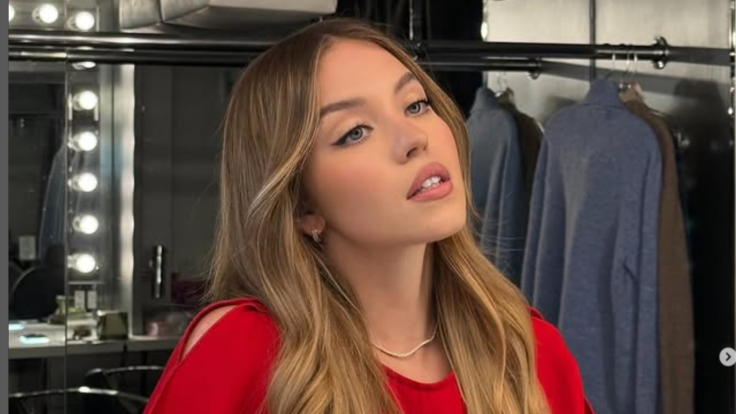Zendaya Allegedly Refuses To Promote 'Euphoria' Season 3 With Sydney Sweeney
Commercial success, political noise and brand-safety calculations can produce the precise conditions where a studio prefers separate publicity rather than joint promotion.

Zendaya and Sydney Sweeney are at the centre of a viral claim that the former has refused to promote the forthcoming third series of Euphoria alongside her co-star.
Both actresses remain two of Hollywood's most bankable young stars, yet the fallout from Sweeney's high-profile American Eagle campaign and the political and social noise that followed shows how a cascade of controversies can create the conditions in which a leading actor might reasonably hesitate to share a promotional stage with a co-star.
A Campaign That Became a Culture War
American Eagle's 'Sydney Sweeney Has Great Jeans' campaign launched on 23 July 2025 and immediately polarised audiences.

The advert's pun, playing on 'jeans' and 'genes', and creative choices prompted accusations that the campaign was tone-deaf and opened space for political interpretation. Critics argued the creative leaned into a narrow visual ideal; supporters said the hullabaloo was manufactured by online commentators.
The campaign nonetheless delivered tangible commercial outcomes. American Eagle reported brisk sales and publicly noted the campaign's contribution to markedly improved trading results, with the retailer crediting its recent marketing push for higher engagement and stronger comparable sales. The brand also stated that proceeds from the limited-edition 'Sydney Jean' would benefit Crisis Text Line.
Sweeney has since addressed the controversy in longform interviews, telling GQ she was 'surprised' by the backlash and framing the campaign as a straightforward fashion collaboration rather than a political statement. That defensive posture, however sincere, does not always satisfy critics and can harden into a reputational flashpoint when other actors, stakeholders, or interest groups decide to amplify the allegations.
How Controversy Becomes a Promotion Problem
Studios and their talent handlers make promotional plans that balance artistic messaging, audience goodwill, and commercial objectives. When one cast member becomes the centre of a controversy, several predictable pressures arise that can escalate into a public split.
Studios and corporate partners increasingly vet public appearances to avoid association with controversy that might damage box office receipts or advertiser relationships. A high-visibility controversy tied to gender, race, or politics raises red flags with sponsors and international distributors; mitigation strategies range from rescheduling junkets to staging separate promotional appearances.
@celebritea.blinds Zendaya REFUSES To Promote Euphoria With Sydney Sweeney | Source: @entylawyer crazydaysandnights.net, agcwebpages.com | Everything in this video is alleged. #zendaya #sydneysweeney #euphoria #euphoriaseason3 #blinditems
♬ original sound - celebritea.blinds
Lead actors who have cultivated a careful public profile and who may serve as both performer and executive producer weigh reputational risk differently. Zendaya has publicly emphasised discretion and control over her projects, telling Vanity Fair that she has been 'waiting' to make Euphoria's next season and that she is protective of her creative choices.
When an unexpected controversy arises around a co-star, a prudent artist or their representatives may request separate promotional schedules to avoid being drawn into debates unrelated to the work. That pragmatic decision can be read by the public as a snub even when it is a contractual or reputational necessity.
Reputation, Calendars, And The Public Record
Human motives mix with industry mechanics. Sweeney's rapid rise, recent political scrutiny, and intense social-media debate have made her a lightning rod. She has experienced invasive paparazzi attention and body-shaming and revealed how these pressures complicate day-to-day life. Combined, those pressures help explain why a studio might prefer to stage segmented publicity rather than co-dependent press tours.
That said, the existence of controversy is not evidence of deliberate personal animus between co-stars. In most documented cases, when a studio or an actor declines a joint promotional appearance the formal record shows logistical explanations, scheduling conflicts or brand safety concerns rather than an explicit 'refusal' born of personal ill will.
If promotional separation were to materialise between Zendaya and Sweeney, watch for three markers: an agent or studio line citing 'scheduling'; staggered press dates and regional appearances; and clear corporate messaging from the network about creative continuity. Those elements would indicate risk management rather than a personal feud.
Zendaya and Sweeney remain powerful draws; it is the industry's job now to navigate how the public conversation around one campaign affects the carefully choreographed business of selling a television season.
© Copyright IBTimes 2025. All rights reserved.





















